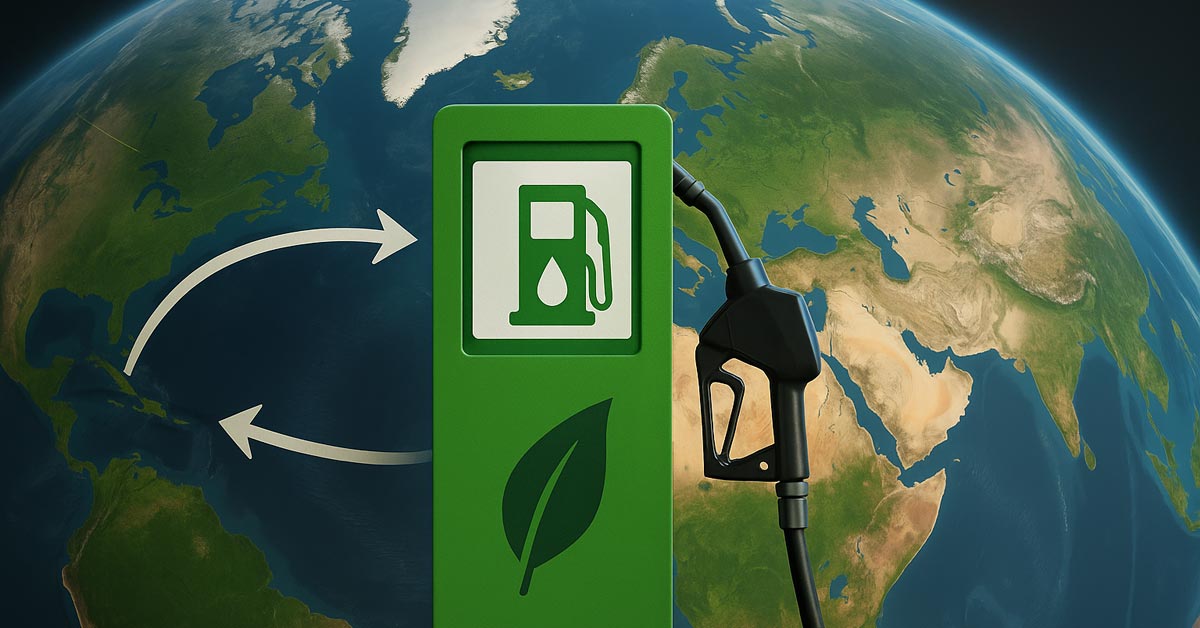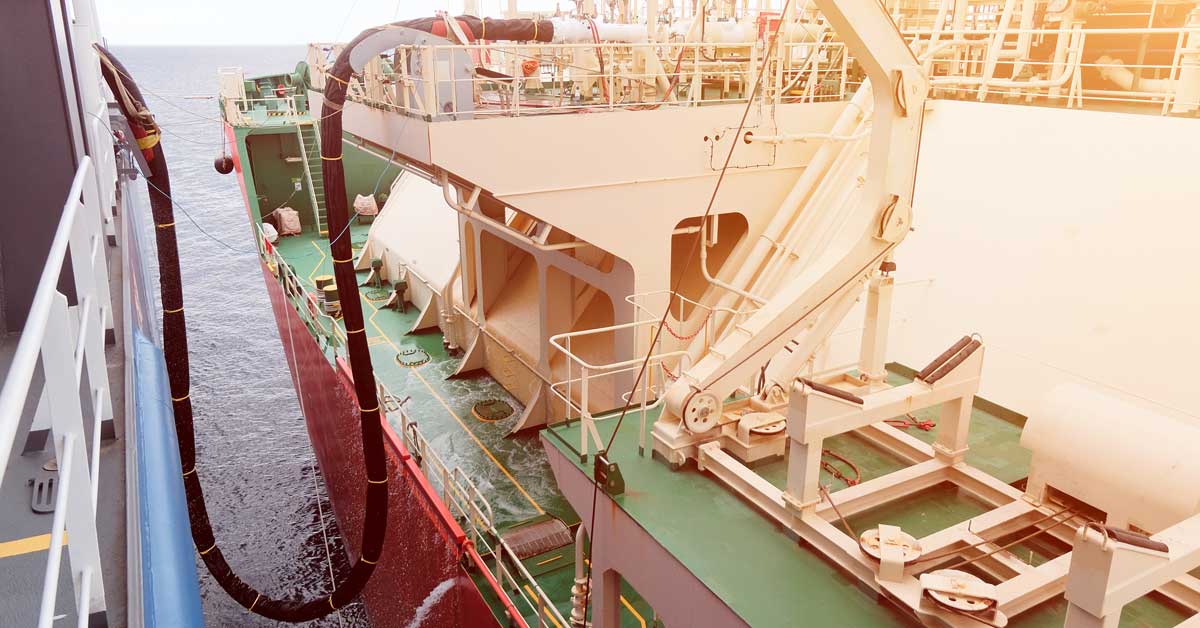3 min read
US States and Global Allies Push Forward on Clean Fuels
ResourceWise
:
May 9, 2025 3:10:57 PM

The global energy transition is progressing with increasing urgency. While federal energy policy often fluctuates with each election cycle, state governments and foreign partners continue to push ahead with bold decarbonization efforts.
From New York’s proposed Clean Fuel Standard to Italy’s diplomatic energy outreach, a new pattern is emerging: the decentralization of climate leadership.
Across the US, a growing number of states are developing market-driven frameworks to reduce the carbon intensity of their transportation and heating fuels. Meanwhile, transatlantic collaboration, particularly between the US and Italy, is picking up the pace in areas ranging from biofuel production to geothermal energy and advanced nuclear technologies.
The through line in all of this? Green fuels and the increasing recognition that energy innovation doesn’t have to wait for federal consensus.
New York Leads a New Wave of Clean Fuel Standards
Among East Coast states, New York is emerging as the clearest frontrunner in implementing a clean fuel standard (CFS). Introduced to the state legislature in early 2025, New York’s bill proposes a 20% reduction in greenhouse gas (GHG) emissions from transportation fuels by 2033.
The bill covers all major fuel types, including electricity for vehicle charging. It also offers credit-generation opportunities for sustainable aviation fuel—despite an exemption for conventional aviation fuel.
If passed, New York’s CFS would be the most ambitious program on the East Coast and could inspire legislative action in neighboring states like New Jersey, Massachusetts, and Connecticut. These states have already advanced biofuel mandates in other sectors such as heating oil. The new regulations could lay the groundwork for broader carbon intensity reduction programs.
The legislative momentum in New York reflects a broader national pattern. Over the past five years, numerous states have introduced CFS legislation. However, only a handful have successfully passed them into law.
For instance, Washington State launched its own program in January 2023 and saw strong early returns. BBD (biomass-based diesel) accounted for 22% of all credits generated in the program’s first quarter, far outpacing California’s LCFS performance in its initial year.
The potential here is quite evident. Washington’s success highlights the viability of these programs outside of California’s mature clean fuels market.
New Mexico also broke new ground this year. In March 2024, the state signed the Clean Fuel Standard Act into law, targeting a 20% reduction in the carbon intensity of transport fuels by 2030 and 30% by 2040.
With implementation scheduled to begin in Q3 2026, the move reflects a significant milestone for clean fuel adoption beyond the traditional West Coast region.
Heating Oil Mandates: A Parallel Push in the Northeast US
While most clean fuel standards focus on transportation, it’s not the only pathway forward for expanding the use of clean fuels. Case-in-point: the movement to decarbonize the heating oil sector in the Northeast.
New York, Rhode Island, and Connecticut have all implemented progressively stricter blending mandates for heating oil. These now require increased volumes of BBD and green diesel in the fuel mix.
In New York, the mandate will rise from 5% today to 10% by July and ultimately to 20% by 2030. Connecticut and Rhode Island are pushing even further, aiming for a 50% blend by 2035 and 2030, respectively.
The scale of this effort cannot be overstated. The heating oil market in the Northeast is massive, with New York, Massachusetts, Pennsylvania, Maine, Connecticut, and Rhode Island collectively consuming around 3 billion gallons per year.
New York alone accounts for more than half of the total US consumption. The US Census Bureau reports that 16% of New York households rely on oil as their primary heating source (four times the national average).
By gradually increasing biofuel blending requirements in this sector, states are effectively creating a parallel clean fuel standard. This strategy could become just as important for emissions reductions as transport-sector initiatives.
Italy and the US: Aligning on Clean Energy Innovation
As US states move forward independently, there’s also growing momentum internationally to collaborate on the next generation of clean fuel solutions.
In early May, Italy’s climate envoy Francesco Corvaro traveled to Washington to engage with the US Department of Energy and other stakeholders on a wide array of renewable energy initiatives. At the heart of these discussions were efforts to jointly develop and deploy several advanced clean technologies, including:
- Sustainable Fuels for Industry and Transport
- Geothermal Power
- Fission and Fusion Nuclear Innovations
One of the most promising areas of collaboration is in supply chain integration.
Corvaro highlighted a growing interest among US partners in tapping Italy’s high-quality energy-technology suppliers. The US also expressed interest in expanding memoranda of understanding with Italian energy companies. If anything, it’s a sign that bilateral investment is likely to increase.
And it already is. In March 2025, US investment firm KKR finalized its acquisition of a 25% stake in Enilive, the biorefining arm of Italian energy giant ENI. The €2.967 billion deal includes €500 million in growth capital and will help accelerate Enilive’s expansion into sustainable fuels.
Forging a Decentralized, Global Approach to Decarbonization
The simultaneous rise of state-level clean fuel policies and international energy alliances suggests that the clean energy transition is both decentralized and resilient.
In the US, while federal policy may ebb and flow, the momentum at the state level is accelerating. The positive momentum is driven both by practical needs and regional leadership.
Globally, countries like Italy are not waiting for Washington to lead but are instead forging meaningful partnerships directly with US firms and agencies.
Together, these developments show that the push toward low-carbon fuels is no longer confined to national agendas. Instead, it is being championed by governors, legislatures, local utilities, and international collaborators. Each of these elements plays a vital role in moving us all further along the path of clean energy progress.
Need Help with Your Decarbonization Strategy?
Is your business in need of a plan for to comply with mandates or get ahead of the carbon transition? If so, our eBook, Mapping a Path for Decarbonization, can help.
The eBook offers straightforward planning steps to help line up your priorities, partnerships, and operations into a solid decarbonization strategy. Download the eBook today.






